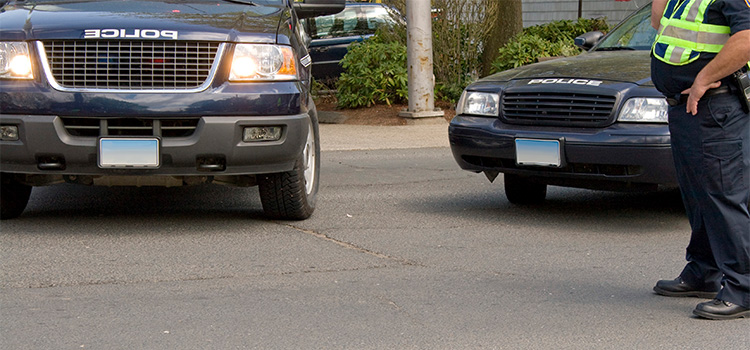By Donald Scarinci
In Caraballo v. City of Jersey City, (A-71-17/080467) (Decided March 29, 2019), the Supreme Court of New Jersey held that police detective Frank Caraballo’s failure to utilize the New Jersey Workers’ Compensation Act’s (Act) administrative remedies to obtain knee replacement surgery precluded his failure-to-accommodate claim under the New Jersey Law Against Discrimination (LAD). The court further held that medical treatment couldn’t qualify as a reasonable accommodation under the LAD.
Facts of Caraballo v. City of Jersey City
While on duty as a detective for the Jersey City Police Department (JCPD) in August 1999, plaintiff Frank Caraballo sustained injuries during a motor vehicle accident. The injuries to his knees were severe and became chronic. In August 2001, Caraballo filed a workers’ compensation claim related to the 1999 accident. Over the next several years, two city-appointed doctors agreed that Caraballo would eventually need total knee replacements to recover fully from his injuries. Caraballo’s workers’ compensation attorney contacted defense counsel for JCPD in 2008 and requested approval for the knee replacement surgery. Caraballo’s attorney also requested a specific physician to perform the surgery, noting that Risk Management had approved that physician.
In August 2010, Caraballo submitted an application for retirement. Around the same time, the Commander of the JCPD Medical Bureau, Lieutenant John McLellan, determined that Caraballo “had been unfit for duty for numerous years.” Although doctors had recommended total knee replacement surgery, McLellan did not believe that Caraballo was pursuing this option. Shortly after Caraballo retired, Risk Management authorized an orthopedic surgeon to evaluate Caraballo for bilateral knee replacement surgery. Thereafter, Caraballo “was told to contact [the] office to pick a date for surgery pending medical and cardiac clearance.” Caraballo never did so.
On March 4, 2013, Caraballo finally settled his workers’ compensation claim. Shortly thereafter, he filed a complaint against the JCPD asserting a cause of action under the LAD. Specifically, Caraballo alleged that the JCPD failed to authorize his knee replacement surgery and, therefore, failed to reasonably accommodate his disability.
The trial court granted the JCPD’s motion for summary judgment. The court found that even if the knee surgery could have qualified as a reasonable accommodation, the record showed that Caraballo was unable to carry out the responsibilities of a police officer with or without the surgery. Citing Flick v. PMA Insurance Co., 394 N.J. Super. 605 (App. Div. 2007), the court concluded that because Caraballo failed to make an application to enforce his right to have knee surgery, he was “precluded from using a denial of the [w]orkers’ [c]ompensation benefits as a basis for his []LAD claim.”
The Appellate Division reversed. It concluded that Caraballo established a prima facie failure-to-accommodate case under the LAD. The panel reasoned that there was a material dispute as to whether Caraballo would have been able to perform his job with the accommodation of a total knee replacement surgery.
The JCPD appealed. The New Jersey Supreme Court agreed to hear the case and also granted amicus curiae status to the New Jersey Association for Justice (NJAJ) and to the New Jersey Municipal Excess Liability Joint Insurance Fund, the New Jersey State League of Municipalities, and the New Jersey Institute of Local Government Attorneys (collectively, Municipal Amici). The Municipal Amici argued that an employee who fails to avail himself of the Act’s exclusive remedies should not be permitted to benefit from his own neglect in seeking treatment in a failure-to-accommodate claim under the LAD. They also urged the court to conclude that medical treatment cannot qualify as a reasonable accommodation under the LAD, arguing that Caraballo’s position, if accepted, would allow employees to “leverage the threat of a LAD suit against an employer” if a demand for workers’ compensation benefits is denied.
Court’s Decision in Caraballo v. City of Jersey City
The New Jersey Supreme Court reversed. It first held that Caraballo’s failure to exhaust the Act’s administrative remedies to obtain knee replacement surgery precluded his failure-to-accommodate claim under the LAD. As the court explained:
Here, Caraballo filed his workers’ compensation claim in 2001, retired in 2011, and settled his claim with the JCPD in 2013. In the interim, Caraballo contacted Risk Management several times to obtain authorization for double knee replacement surgery but never sought to enforce his right to the surgery in the workers’ compensation court. Caraballo’s failure to utilize the Act’s administrative remedies to obtain knee replacement surgery precludes his failure-to-accommodate claim under the LAD.
The New Jersey Supreme Court further held that medical treatment does not qualify as a reasonable accommodation under the LAD. After acknowledging that New Jersey courts had not previously considered the issue, it looked to other jurisdictions. The court ultimately adopted the reasoning of the court in Desmond v. Yale-New Haven Hosp., Inc., 738 F. Supp. 2d 331, 350 (D. Conn. 2010). In that case, the Connecticut District Court held that a reasonable accommodation must relate to workplace barriers. Moreover, the Americans With Disabilities Act (ADA) and state civil rights laws do not require employers to ensure that an injured employee is receiving appropriate medical treatment.
The New Jersey Supreme Court agreed, writing:
The medical procedure sought by Caraballo — his double knee replacement surgery — is neither a modification to the work environment nor a removal of workplace barriers. Rather, it is a means to treat or mitigate the effects of his injuries, like the treatments at issue in Desmond. We therefore find it consistent with the LAD, the ADA, and their regulations that Caraballo’s total knee replacement surgery cannot qualify as a reasonable accommodation under the LAD.
In reaching its decision, the state’s highest court confirmed that workers’ compensation is the exclusive remedy for injured workers regarding medical benefits.

